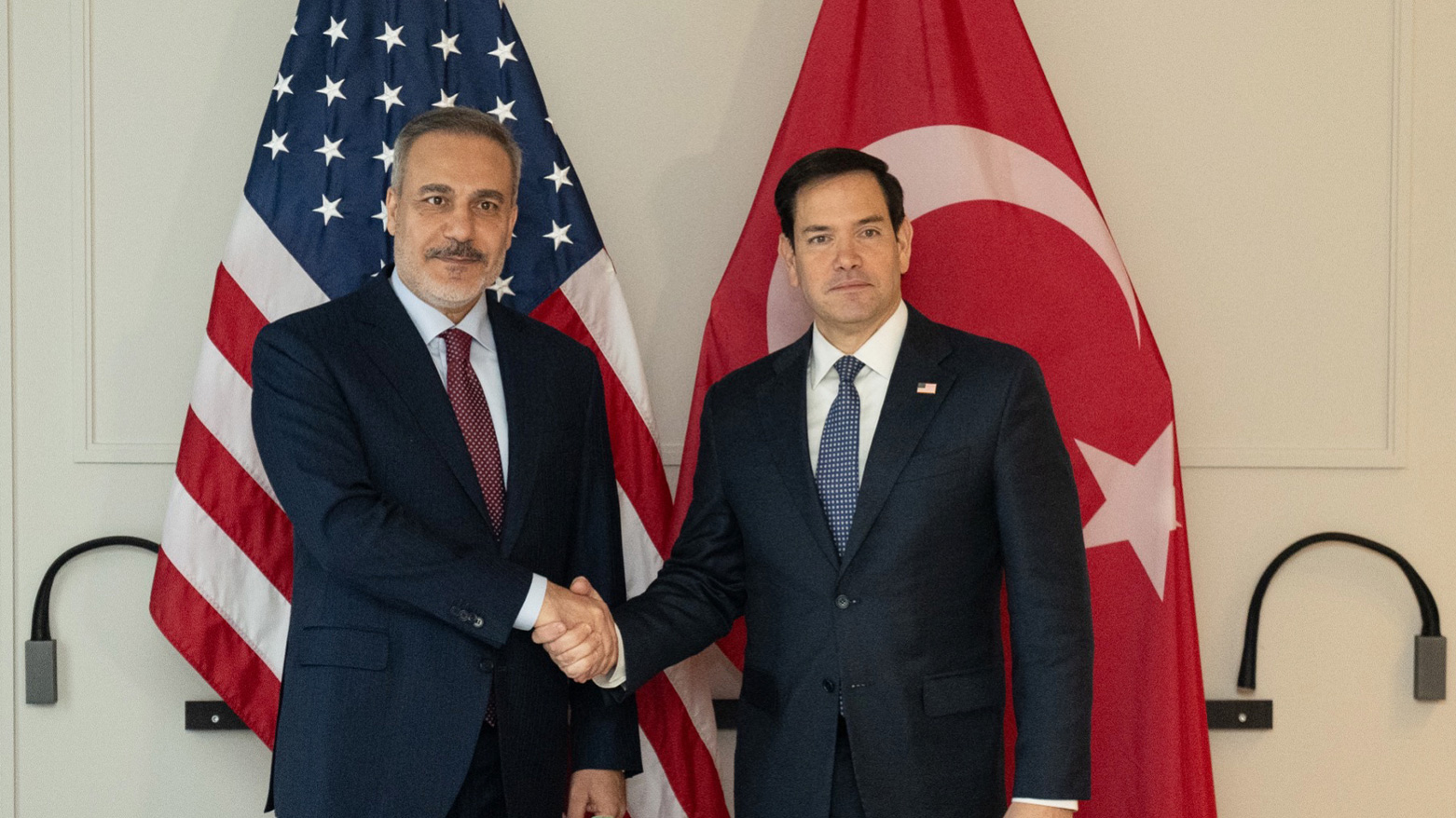US Secretary of State, Turkish Foreign Minister Meet at Munich Conference
Their meeting was the first senior level engagement between the US and Turkey in Trump’s second term, and it focused on Syria.

WASHINGTON DC, United States (Kurdistan 24) - U.S. Secretary of State Marco Rubio met with Turkish Foreign Minister Hakan Fidan on Friday on the sidelines of the Munich Security Conference.
Even though Donald Trump’s second term is less than two months old, Egypt’s Foreign Minister has already visited Washington, as has Jordan’s King Abdullah II, as well as Israeli Prime Minister Benjamin Netanyahu.
The meeting between Rubio and Fidan was the first senior level engagement between the U.S. and Turkey in Trump’s second term.
Rubio will hold further meetings in Munich on Saturday, before leaving on a tour of three Middle Eastern countries: Israel, Saudi Arabia, and the United Arab Emirates (UAE.)
Rubio’s Exchanges with Fidan—Syria Focus
Just one day after he assumed office, Rubio held a telephone call with Fidan. In their January 22 call, Rubio and Fidan reaffirmed “the importance of U,S.-Turkey relations, Turkey’s role as a key NATO ally, and our shared interests in the region,” according to a State Department read-out of their conversation.
Developments in Syria were a significant topic in that discussion. Turkey was a major backer of Hayat Tahrir al-Sham (HTS), the group that overthrew the Baathist regime in Damascus last December.
Indeed, almost certainly, HTS could not have accomplished such a feat on its own. So Turkey retains significant influence with Syria’s new HTS government.
In his conversation with Fidan last month, Rubio “highlighted the need for an inclusive transition” in Syria in order to ensure that “the new government prevents Syria from becoming a source for international terrorism and denying foreign malign actors the opportunity to exploit Syria’s transition for their own objectives,” the U.S. read-out of their discussion stated.
And yesterday, when Rubio met with Fidan, Syria, once again, topped their agenda. As the State Department read-out of their meeting explained, Rubio “emphasized the need for close cooperation to support a stable and unified Syria that is not a threat to the United States, Turkey, or the region.”
They also discussed the anti-ISIS Coalition, which, apparently, had not been a topic of discussion in their phone call last month. That is what the U.S. read-outs would suggest, and the change may reflect a recent increase in ISIS’s activities.
Read More: CENTCOM Supports Iraq in Kirkuk Airstrikes, as ISIS Terror Increases
As the U.S. readout of Friday’s meeting between Rubio and Fidan explained, “The Secretary noted Turkey’s leadership in the Global Coalition to Defeat ISIS,” along with “our joint efforts to support a just and lasting peace in the South Caucasus, and our shared objective of ending Russia’s war on Ukraine.”
Rubio’s Further Travel to Israel, Saudi Arabia, and the UAE
Rubio has further engagements in Munich today, including a meeting of the G-7, which is likely to focus on Ukraine. Afterwards, he will travel to Israel, before going on to Saudi Arabia and the UAE.
In Israel, Rubio’s meetings will likely focus on the Gaza ceasefire, which has been given a renewed momentum. Hamas had threatened to halt further hostage releases, but after strong threats from the U.S.and Israel, and after consultation with Egypt, which has been a mediator in the ceasefire, Hamas reversed itself and announced that it would free three hostages today, as required by the ceasefire.
One of those three is a dual Israeli-American citizen. Most likely, Rubio will meet with him in Israel, and, perhaps, Rubio will meet with the other two, as well.
After his work in Israel is completed, Rubio will proceed on to Saudi Arabia and the UAE. As was recently revealed, Riyadh, for the past three years, has been involved in negotiating matters that are related to the conflict between Russia and Ukraine.
As The New York Times explained, “Saudi Arabia has increasingly played the role of mediator in the Russia-Ukraine war, along with its neighbor, the United Arab Emirates.”
It is likely that the anticipated meeting between Trump and Russian President Vladimir Putin will be a major subject of discussion in Rubio’s talks in Saudi Arabia and the UAE, in addition to more traditional Middle Eastern issues, such as the war in Gaza and the effort to sustain the ceasefire there.
Read More: Trump: Saudi Arabia Will Likely Host First Meeting with Putin
Moreover, Riyadh has told Washington that it is prepared to make very large investments in the U.S.—as much as $500 billion—and it is likely that subject will arise during Rubio’s discussions in Saudi Arabia, as well.
